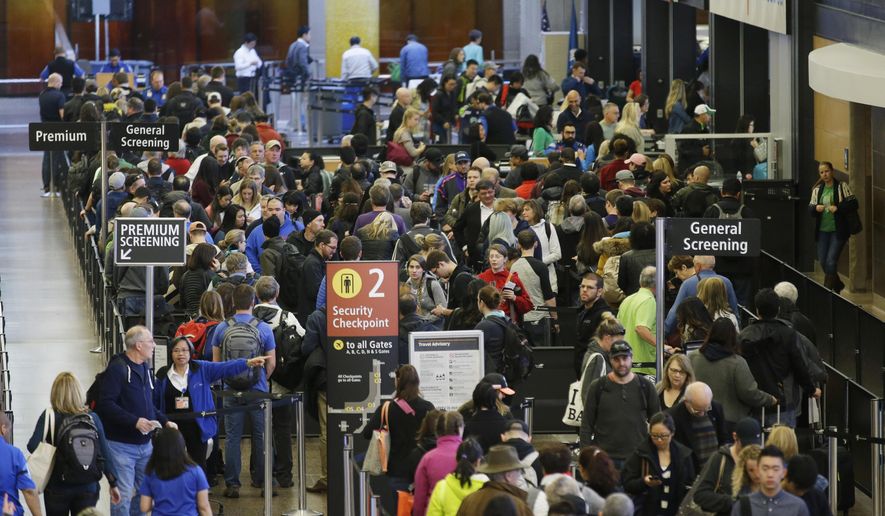TSA administrator Robert Neffenger admitted Wednesday that only three U.S. airports require employees to go through a security check before entering “secured” areas of the airport.
Mr. Neffenger made the confession to lawmakers at a Senate Commerce Committee hearing on TSA security on Wednesday.
Atlanta, Miami, and Orlando’s airports are the only three to require employee security screenings, Judicial Watch said.
Senators reached a deal Thursday to bolster travel security in the wake of the terrorist attacks in Brussels, with measures that include doubling the number of TSA security teams with bomb-sniffing dogs at domestic airports.
Other measures would also bolster the vetting of airport employees and add security to baggage claim areas.
Mr. Neffenger’s admission comes on the heels of several incidents involving gun and drug-smuggling operations by airline employees at major airports, including airports in Atlanta, New York and San Francisco.
SEE ALSO: TSA vows changes at Sea-Tac amid talks of privatizing airport security
In March, it was reported that in 2015, the Department of Homeland Security had identified over 70 employees at nearly 40 airports across the country who have been flagged for possible ties to terrorism.
However, TSA officials have said those employees are not necessarily involved in terrorism.
“There is no evidence to support the suggestion by some that 73 DHS employees are on the U.S. government’s consolidated terrorist watch list,” TSA spokesman Michael England said, Law Newz reported.
In 2014, federal investigators uncovered a massive gun smuggling operation at Hartsfield-Jackson Atlanta International Airport. In that case, an airline employee reportedly helped load hundreds of guns on at least 20 flights between Atlanta and New York City.
In a 2015 report, the Aviation Security Advisory Committee wrote that most airports can’t afford to conduct daily employee screenings and, even if they could, those checks wouldn’t do much to improve security.
The committee wrote that daily screenings wouldn’t “appreciably increase the overall system-wide protection,” and said “no single measure can provide broad-spectrum protection against risks or adversaries.”
• Kellan Howell can be reached at khowell@washingtontimes.com.




Please read our comment policy before commenting.